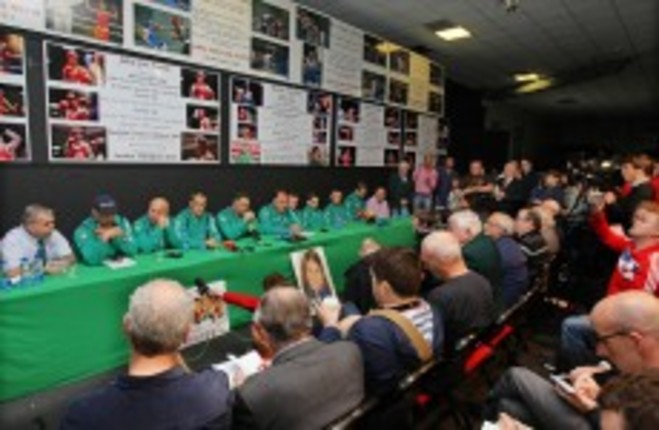EVERY SUNDAY, TheScore.ie brings you some of our favourite pieces from the previous seven days.
1. “I never liked Federer. He may be a nice guy. He may have as many moral virtues at his disposal as he does tennis strokes. And I’m happy to believe he’s the greatest tennis player ever. But I always want him to lose. He’s one of those stars, like Helen Mirren, that people seem to admire because they want to say something about themselves.”
Benjamin Markovits probably isn’t alone in his disliking of Roger Federer, but the Swiss’ skills make him feel it.
2. Most clubs turned a blind eye to racism back then. It was easier to pretend it wasn’t happening. Match Of The Day didn’t highlight it and players didn’t discuss it, let alone complain. This was the era of Love Thy Neighbour and Alf Garnett, when racist characters were the heroes of sitcoms. Football merely reflected common values.
The Guardian‘s Simon Hattenstone examines what it’s like being on the wrong end of racism in English football, by asking the men who know.
3. “Sky have crafted themselves as a team that prides itself on its anti-doping stance, and their vocal attitude against doping has rightly been hailed as leading the way into a new era for the sport. So when their star rider, the man who is identified as a custodian of the sport by virtue of the yellow jersey he wears, suddenly turns that anger and wrath against the fans, I can appreciate the disappointment.
Framed by a little Bradley Wiggins profanity, The Science of Sport attempts to take a step back from all the cheating or non-cheating talk and turns hard data into something enjoyable.
4. Darren Eadie’s first instinct was panic. He was a top Premier League footballer at the time, earning good money. “When I got home and spoke to all my family on the phone, I wasn’t sure what to do. My first thoughts were that money would be an issue and I’d have to sell everything to get by. It was unrealistic to be driving around in a Porsche any more. Everybody did their best to keep my spirits up, but the unknown was frightening.” He recalls his final day at Leicester when he said his goodbyes, collected his belongings and walked into the boot room to take that pair of his down off the peg.
“That was probably the worst moment,” he says. “Being told in a hospital environment wasn’t great but going to gather my football bits together, knowing I was going to leave, was the hardest moment.” It was after selling up in Leicester and moving back to the family home in Norwich, that he was finally confronted with the enormity of what lay in front of him.
The former Leicester striker tells James Scowcroft of the career-ending knee injury which kick-started a tail-spin into depression.
5. “On July 1, 1987, WFAN, a 24-hour sports talk radio station, broadcasting out of a sub-basement in Queens, hit the air….”
Sitting comfortably (this is the long one)? Alex French and Howie Kahn chart the epic fall and rise of the first all-sport radio station, WFAN.
6. “I’m here for John Terry. The Queen’s Park Rangers situation, this is not my business, I come only because I love John Terry. He is my favourite. I come to court because I am behind John Terry forever, and even if he’s convicted, I would go to jail on behalf of John Terry.”
Jeremy Allen of Vice spent some time outside London Magistrates Court to figure out just what kind of person hangs around to catch a glimpse of the acquitted Chelsea captain.

